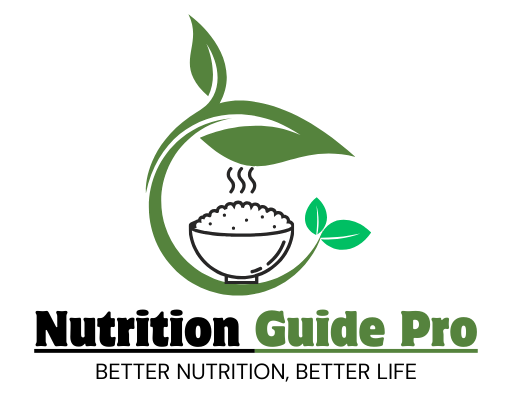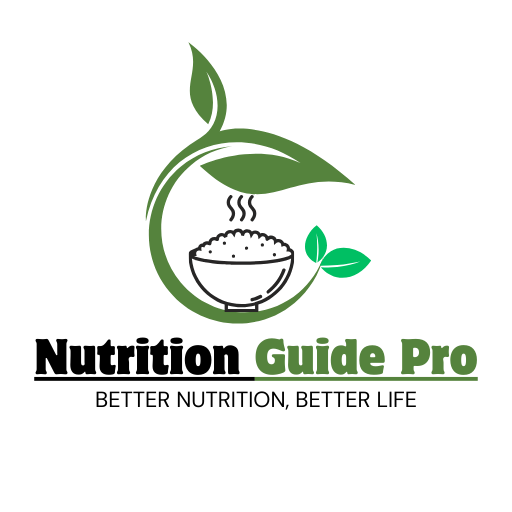Overview of Yogurt for Babies
Introducing yogurt to your baby is a great way to boost their nutrition. Yogurt is packed with essential nutrients like calcium and protein, which support healthy growth and development. It also contains probiotics, which improve digestion and help strengthen your baby’s immune system.
Pediatricians generally recommend introducing yogurt after 6 months of age. This is when babies are ready to handle solids, and yogurt is easier to digest than whole milk. Always consult your pediatrician before introducing dairy products to ensure they are safe for your child.
Choosing the best yogurt for babies is crucial. The right type of yogurt ensures they get the healthy fats and nutrients needed for brain development and growth.
Avoid added sugars and artificial ingredients to keep your baby’s diet clean and nutritious. Selecting yogurt with live cultures can further support their overall health.
Nutritional Benefits of Yogurt for Babies
Yogurt is one of the best food options for babies because it’s packed with essential nutrients for growth and development. Calcium is a crucial component of yogurt, supporting bone development, which is especially important during early growth. The high calcium content in yogurt promotes stronger bones and teeth.
Another advantage is that yogurt is rich in probiotics. These are healthy bacteria that boost gut health, improving digestion and immunity. This benefit can’t be understated since babies are still building their immune systems.
Protein is another essential nutrient found in yogurt. It supports babies’ growth and development by providing the building blocks for healthy tissues and muscles. Essential vitamins, such as B12 and D, are critical for overall health.
Vitamin D helps with calcium absorption and promotes healthy bones, while B12 supports brain function and the nervous system. Additionally, yogurt contains minerals like potassium, which aids in hydration and proper muscle function.
The following table is designed for parents or caregivers exploring the nutritional benefits of introducing yogurt to their babies’ diets. It highlights key vitamins and minerals and their benefits in supporting infants’ healthy growth and development.
| Nutrients | Key Benefits for Babies |
| Protein | Supports muscle growth and development. |
| Calcium | Essential for bone and teeth development. |
| Vitamin D | Enhances calcium absorption, which is crucial for healthy bones. |
| Phosphorus | Combined with calcium to fortify teeth and bones. |
| Magnesium | Supports muscle function and energy production. |
| Vitamin B12 | Helps with brain development and red blood cell formation. |
| Probiotics | Promotes healthy gut bacteria and improves digestion. |
Yogurt is a nutritious food for babies and can aid their overall physical development, particularly for muscles, bones, and digestion.
When and How to Give Babies Yogurt?

When babies are ready for solid meals, which is approximately six months of age, experts usually advise introducing them to yogurt. Some signs of readiness for solid foods include sitting up unsupported, showing interest in what others are eating, and having good head and neck control.
Before introducing dairy products like yogurt, it’s essential to consult with a pediatrician to ensure your baby doesn’t have any food sensitivities or allergies. One common question parents ask is why babies can have yogurt but not regular cow’s milk. The proteins in yogurt are partially broken down through fermentation, making them easier for babies to digest.
Gradually introducing yogurt is a wise strategy, allowing you to monitor your baby for any potential allergic reactions. Always start with small amounts and observe for any discomfort or signs of intolerance.
Types of Yogurt Suitable for Babies
Yogurt can be an excellent source of essential nutrients for children. Here are ten types of yogurt suitable for kids, along with their nutritional benefits:
- Plain Whole Milk Yogurt
Whole milk yogurt is baby-friendly yogurt, rich in fat and essential for brain development in children under two years old. Vitamins D and A, calcium, and protein are also present.
- Greek Yogurt
Greek yogurt is thicker than regular yogurt and has higher protein content. Additionally, probiotics, which promote intestinal health, are abundant. Greek yogurt is excellent for growing children as it aids in muscle development.
- Regular Yogurt
Regular yogurt contains live active cultures that are beneficial for digestive health. It typically has less protein than Greek yogurt but is still a good source of calcium and vitamins.
- Organic Yogurt
Organic yogurt is made from milk without synthetic fertilizers or pesticides. It often contains more beneficial nutrients and fewer harmful substances, making it a healthier choice for children.
- Non-Organic Yogurt
While non-organic yogurt may be more affordable, it’s still rich in calcium, protein, and probiotics. It’s a viable option if organic isn’t available.
- Flavored Yogurt (Low Sugar)
While flavored yogurt can appeal to kids, choosing low-sugar options is essential. Look for yogurts with natural fruit flavors to avoid artificial ingredients while providing vital nutrients.
- Dairy-Free Yogurt
Options made from almond, coconut, or soy are great for lactose-intolerant children. These yogurts can still provide calcium and probiotics, especially if fortified.
- Plant-Based Yogurt
Plant-based yogurts can be made from oat, cashew, or soy. They are often lower in fat and can provide good nutrients, though they may have less protein than dairy.
- Whole Milk Yogurt with Probiotics
Yogurts enriched with probiotics support digestive health and boost immunity, which is particularly beneficial for children’s overall health.
- Kefir
While not a traditional yogurt, kefir is a fermented milk drink rich in probiotics. It provides calcium, protein, and a range of vitamins, making it a nutritious addition to a child’s diet.
Nutritional Table of Yogurt Types
| Yogurt Type | Key Nutrients | Protein Content | Ideal For |
| Plain Whole Milk Yogurt | Calcium, Vitamin A, Vitamin D | Moderate | Under 2 years |
| Greek Yogurt | Protein, Probiotics | High | Muscle development |
| Regular Yogurt | Calcium, Probiotics | Low | General digestive health |
| Organic Yogurt | Vitamins, Fewer pesticides | Moderate | Health-conscious families |
| Non-Organic Yogurt | Calcium, Protein | Moderate | Budget-friendly option |
| Low-Sugar Flavored Yogurt | Natural flavors, Vitamins | Low | Sweet-toothed children |
| Dairy-Free Yogurt | Calcium (if fortified), Probiotics | Varies | Lactose-intolerant children |
| Plant-Based Yogurt | Fiber, Healthy fats | Low | Vegan or lactose-intolerant kids |
| Whole Milk Probiotic Yogurt | Probiotics, Calcium | Moderate | Immune support |
| Kefir | Probiotics, Calcium, Vitamins | High | Digestive Health |
What to Look for When Buying Yogurt for Babies
Want to buy the best yogurt for your baby? Here are the points you should consider before making a purchase.
- Ensure the yogurt is made from whole milk and is full-fat, as babies need the fat for brain development.
- Look for yogurts that contain live active cultures (probiotics) to support digestion and immunity.
- Avoid yogurts with added sugars, artificial flavors, and preservatives, as these additives are not suitable for babies.
- Choose yogurts with simple ingredients, ideally just milk and live cultures.
- Consider the texture and form that best suits your needs, such as cups, bottles, or sticks for convenient feeding on the go.
Top Yogurt Brands for Babies in the USA
Here are ten of the best types of yogurt suitable for children, focusing on their nutritional benefits, vitamins, and minerals:
Top Ten Yogurt Brands for Babies in the USA
| Brand | Key Features | Vitamins and Minerals |
| Stonyfield Organic YoBaby | Organic, whole milk, probiotic-rich | Calcium, Vitamin D, Protein |
| Siggi’s | Icelandic-style, low-sugar, high protein | Calcium, Vitamin B12, Protein |
| Happy Baby Organic Yogurt | Designed for babies and includes probiotics | Calcium, Vitamin D, Probiotics |
| YoYo Baby Yogurt | Whole milk, organic, with added DHA | Calcium, DHA, Protein |
| Chobani® Kids | Low-sugar, whole milk, and fruit flavors are available | Calcium, Vitamin D |
| Oikos Triple Zero | High protein, no added sugar | Calcium, Protein |
| Fage Total 2% | Creamy texture, high protein | Calcium, Vitamin B12, Protein |
| Muller® Corner | A variety of flavors contains fruit | Calcium, Vitamin D |
| Silk Dairy-Free Yogurt | Plant-based, suitable for lactose-intolerant kids | Calcium, Vitamin B12 |
| Dannon® Activia | Contains probiotics, gut health benefits | Calcium, Probiotics |
Nutritional Highlights
- Calcium: Essential for strong bones and teeth.
- Vitamin D: Supports calcium absorption and bone health.
- Protein: Vital for growth and development.
- Probiotics: Beneficial for gut health and digestion.
- DHA: Important for brain development.
These yogurts provide a combination of essential nutrients that support toddlers’ growth and health. When selecting yogurt for children, consider options that are organic and free from added sugars for optimal health benefits.
How to Serve Yogurt to Babies?

There are many creative ways to serve yogurt to babies, ensuring they get all its nutritional benefits while enjoying different flavors and textures. You can serve plain yogurt with pureed fruits like apples, bananas, or berries. This not only adds natural sweetness but also provides extra fiber and vitamins.
Another option is to mix yogurt with baby cereal, which adds texture and provides extra iron, an essential nutrient for babies. You can also serve yogurt as a dip for soft finger foods like fruits or cooked vegetables, making mealtime fun and interactive for your baby.
If you enjoy preparing homemade foods, try making homemade yogurt or yogurt drops for your baby. Homemade yogurt allows you to control all the ingredients, ensuring it’s as healthy and natural as possible.
Allergies and Safety Considerations
Always consider the following precautions when giving yogurt to your baby.
Watch for Allergic Reactions: Look for signs such as rashes, vomiting, diarrhea, or breathing problems when introducing yogurt. Stop feeding immediately and consult a pediatrician if any symptoms occur.
Gradual Introduction: Start with small amounts and increase gradually to assess your baby’s tolerance to yogurt. While rare, some babies may have difficulty digesting lactose, though yogurt’s fermentation process typically breaks down much of the lactose.
Nutrient-Rich Option: Yogurt can provide essential nutrients crucial for your baby’s growth and development.
Choose Wisely: Select yogurt types that are free from unnecessary additives and potential allergens to ensure your baby receives maximum health benefits.
Bottom Line
Yogurt offers numerous health benefits for babies, making it a top choice for early nutrition. Its rich calcium content supports bone development, while probiotics promote a healthy gut and stronger immunity.
Yogurt is a crucial source of essential protein, vitamins, and minerals for babies’ growth. However, consulting a pediatrician before introducing yogurt is vital to ensure your baby is ready and free from allergies or sensitivities, especially when considering fun food before one.
Choosing the best yogurt for babies is equally important for balanced nutrition. Opt for plain, whole milk yogurt, which provides the necessary fats for brain development.
Avoid added sugars and artificial ingredients, focusing on options with live active cultures. Whether it’s Greek yogurt for extra protein or organic yogurt for fewer additives, selecting the right product helps ensure your baby gets the nutrition they need.
Frequently Asked Questions (FAQs)
Is Natural Or Greek Yoghurt Better For Babies?
When choosing yogurt for babies, consider the full-fat, plain varieties over reduced options. Both Greek and natural yogurts are good choices, but natural yogurt may offer simpler ingredients. From personal experience, standard yogurts often contain unnecessary additives.
What Distinguishes Regular Yogurt From Baby Yogurt?
When considering baby yogurt versus regular yogurt, it’s important to focus on their key differences. Baby yogurt typically uses whole milk, which provides essential fat for growing infants, unlike low-fat options meant for adults and kids. This ensures that babies receive adequate vitamins and minerals like vitamin D, which is crucial for their development.
Is Yogurt Good For Babies Every Day?
Yes, yogurt can be good for babies every day starting from around six months of age. It provides important nutrients like protein, calcium, and vitamin D, which are crucial for their growth and development, similar to what milk and cheese offer.



